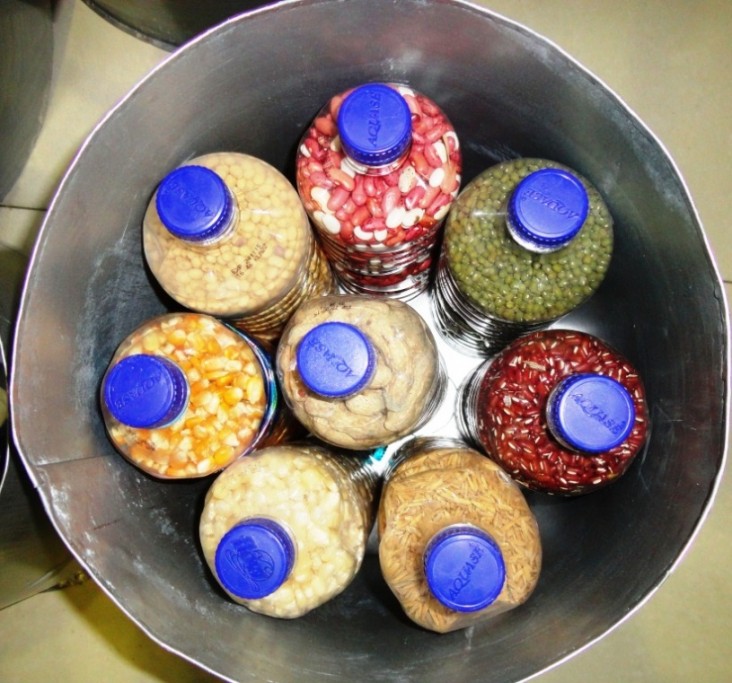|
Purpose: To ensure sustainable post-harvest protection of seeds and grain stocks and improve crop production and livelihoods in rural Timor-Leste. |
Location: Nationwide
|
|
Partner: Mercy Corps Sub-grantee: Catholic Relief Services (CRS) |
Duration: August 2010 – February 2015 |
|
Cooperative Agreement: $ 2.3 million |
Background:
Over 80% of Timor-Leste’s total population relies on subsistence farming. Rural farmers across the country are faced with considerable constraints, including poor climatic conditions, flooding and erosion, limited access to improved inputs and markets and limited knowledge of agricultural best practices. It is a common practice for farmers to save and store seeds for the next planting season, in particular for maize and rice – the main staples. It is also a tradition that seed and grain are stored together. However, limited knowledge and resources for effective post-harvest storage practice has led to high post-harvest losses and poor yields due to the use of low quality seeds for planting. In Timor-Leste context, seed system insecurity has been recognized as the underlying factor of food insecurity. An intervention that addresses seed system security issues in the country is essential to mitigate post-harvest storage losses of farm saved seed and to maintain better quality seed to reduce underlying risk factors of availability, accessibility and utilization of quality seed.

Summary:
USAID’s Effective Seed Storage designs and develops sustainable and scalable seed storage models for Timor-Leste. Working with local manufacturers, USAID’s Effective Seed Storage prepares the market for its new metal-based seed storage system. In partnership with the suco (village) Agriculture Extension Officers, Effective Seed Storage trains farmers in better post-harvest handling techniques in two districts: Ainaro and Manufahi. By the end of 2013, more than 3,100 farmers in Manufahi and Ainaro gained access to the improved seed storage system. Based on this success, USAID’s Effective Seed Storage has partnered with Catholic Relief Services (CRS) to expand its activities to at least nine other districts in Timor-Leste, aiming to reach another 40,000 farmers by February 2015.
In 2013, USAID’s Effective Seed Storage demonstrated an 80.5% decrease in seed storage losses contributing to an increase of 2 months in food self-sufficiency amongst pilot farmers.








Comment
Make a general inquiry or suggest an improvement.